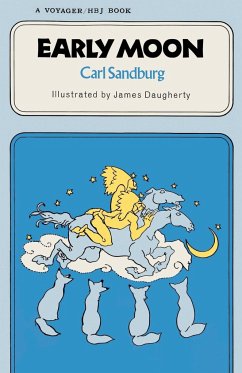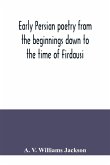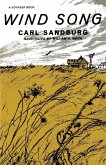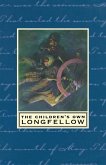An anthology by a well-known American poet grouped under such topical headings as "Wind and Sea", "Portraits", and "Birds and Bugs".
What is poetry? Carl Sandburg asks in the delightful "Short Talk" that opens this volume. How is a poem made? If it can be explained, is it really a poem? Should children write poetry? He then goes on to present his own captivating, often amusing poems. Dealing with everyday themes that young readers will enjoy, he writes about skyscrapers, hats, tractors, and buffaloes; pumpkins, weeds, cabbages, and birds. There are groups of poems about children, wind and sea, and night; and a number of Sandburg's best-known poems, including "Fog."
Hinweis: Dieser Artikel kann nur an eine deutsche Lieferadresse ausgeliefert werden.
What is poetry? Carl Sandburg asks in the delightful "Short Talk" that opens this volume. How is a poem made? If it can be explained, is it really a poem? Should children write poetry? He then goes on to present his own captivating, often amusing poems. Dealing with everyday themes that young readers will enjoy, he writes about skyscrapers, hats, tractors, and buffaloes; pumpkins, weeds, cabbages, and birds. There are groups of poems about children, wind and sea, and night; and a number of Sandburg's best-known poems, including "Fog."
Hinweis: Dieser Artikel kann nur an eine deutsche Lieferadresse ausgeliefert werden.








